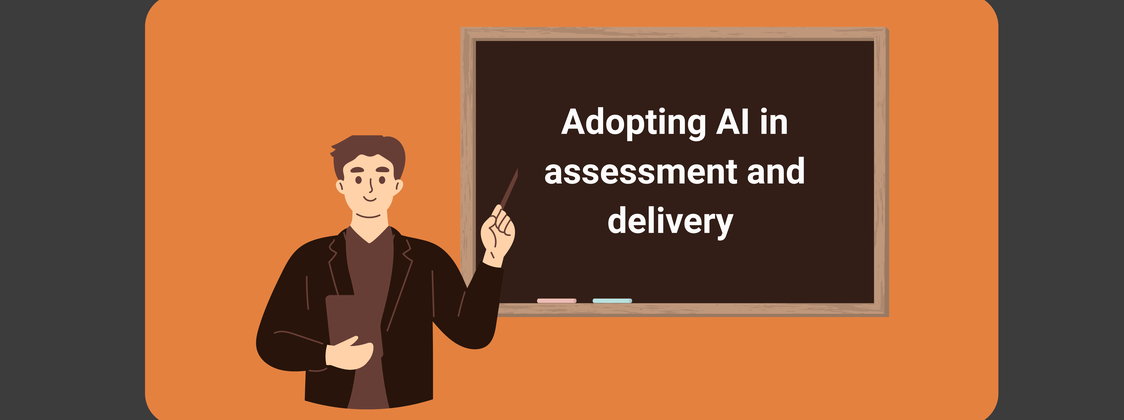Formative & summative assessment agents
Problem
Assessment is a defining feature of education, yet learners often struggle with writing, and one-on-one assessment is not feasible due to it being so time-consuming.
Solution
The first use of AI agents in assessment is what we piloted – formative and summative assessment. A formative assessment agent would assess a learner while they are learning a topic and provide feedback to help them improve. In contrast, a summative assessment agent would make a final assessment of the learner at the end of the learning process. This would require it avoid providing any ‘hints’ during the conversation.
Validation agent
Problem
Many learners are using AI to complete their assignments. This makes it difficult to assess whether they understood the topic. We cannot stop them from using AI for assignments, and arguably, they need to learn how to use AI effectively.
Solution
Another potential agent is one that asks a learner about how they undertook their assignment. For example, they submit an essay, and then an agent asks them questions like: “how did you go about writing your essay?” or “did your approach change as you went, and if so, how?”
Verification agent
Problem
It is common in work-based learning to have employers report on their learners’ progress. Yet employers themselves have limited time and often don’t like writing. The education provider may need to send reminders to the employer, and may need to go back to the employer to clarify their answers.
Solution
A verification AI agent would ask the employer about the learner’s progress, ask follow-up questions when needed, develop the report within a set template, and send it to the education provider.
Pre-screening agent
Problem
When learners begin a new qualification, it can be hard to assess their skill level and where they should begin. While learners can provide written documentation of previous experience (e.g. school records) or discuss what options would be best for them (e.g. with course coordinators), this process is often time-consuming.
Solution
A pre-screening AI agent would help by assessing a learner’s competency and skills before they start a qualification, to ensure they are at the right level. Additionally, it could identify the learners' interest areas and ensure these are a match to the qualification.
Recognition of prior learning (RPL) agent
Problem
There are many highly experienced people who have not completed a formal qualification in their area of expertise. In some cases, there is interest to undergo an RPL process to gain a credential for their knowledge. However, this requires assessing the learner on a large range of topics, across many sources of evidence (e.g., conversation with the person and their employer; copies of job descriptions, work logs, farm plans, etc).
Solution
An RPL AI agent would collect evidence about the learner’s existing capabilities, with the purpose of awarding a credential. It could ask the learner about certain topics, and review physical evidence of their learning (e.g., copies of job descriptions, work logs, farm plans, etc.).
Output generator agent
Problem
Learners, employers and researchers spend a lot of time brainstorming, creating and iterating fit-for-purpose outputs (e.g., budgets and farm plans) from scratch. This is even more difficult if they have never created this output before and do not have someone to walk them through creating it.
Solution
This AI agent would use set questions and follow-ups to support a user in creating an output (e.g., budget or farm plan). Depending on the desired learning experience, it could guide the user to generate it (i.e., requiring more user engagement), or simply generate it for the user (i.e., requiring less user engagement).
Learning assistance agent
Problem
Learners often need more support than teaching staff can provide, or when teaching staff aren’t available. For example, this might be to ask what to bring to a course, what a certain term means, for feedback on their work, to roleplay a work scenario, or where to go for certain support within the organisation.
Solution
A learning assistance agent would be able to answer learners’ questions, give feedback and roleplay. It would do this by utilising a corpus of information on the course.

 Phoebe Gill
Phoebe Gill